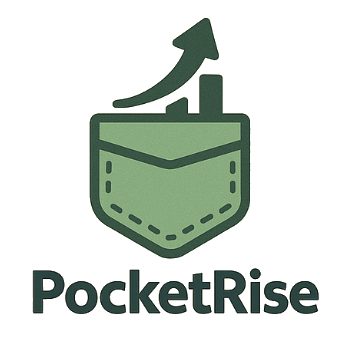Real estate has long been one of the most reliable ways to build long-term wealth. But if you’re new to investing, the idea of buying property might seem intimidating — or even out of reach.
The good news? You don’t need to be rich, have a real estate license, or buy a giant apartment complex to get started.
Here’s a simple, beginner-friendly guide to investing in real estate in 2025 — including your options, risks, and how to start with confidence.
1. Why Real Estate Is a Popular Investment
Real estate offers a few unique advantages:
- Steady cash flow through rental income
- Property appreciation over time
- Tax benefits like deductions and depreciation
- Tangible asset you can see and manage
- Leverage — you can borrow money to buy more valuable property
It’s not risk-free, but when done right, real estate can be a powerful wealth-building tool.
2. Real Estate Investing Strategies for Beginners
There’s more than one way to invest in real estate. Here are a few entry-level options:
A. Buy and Hold Rental Property
This is the classic method — buying a property and renting it out for monthly income.
You’ll need a down payment (often 15-25%) and should budget for maintenance, property taxes, and vacancies.
B. REITs (Real Estate Investment Trusts)
Want exposure to real estate without owning property?
REITs are companies that own or finance income-producing real estate. You can invest in them like stocks — perfect for beginners.
C. House Hacking
Buy a multi-unit property (like a duplex), live in one unit, and rent the others.
Your tenants help pay your mortgage — sometimes fully.
D. Real Estate Crowdfunding
Platforms like Fundrise or RealtyMogul let you invest in real estate projects with as little as $10-$1,000.
3. What to Consider Before You Invest
Real estate can be rewarding, but it’s not passive in the beginning. Here’s what to think about:
- Your budget: Can you cover the down payment, repairs, and emergencies?
- Your location: Look for areas with strong rental demand or growth potential.
- Your time: Are you ready to manage tenants, or will you hire a property manager?
- Your exit strategy: Will you flip, hold, refinance, or sell later?
4. Top Tips for First-Time Investors
- Start small. A single-family rental is easier to manage than an apartment building.
- Run the numbers. Make sure rent covers expenses — aim for positive cash flow.
- Build a team. A good real estate agent, inspector, lender, and contractor go a long way.
- Expect surprises. Vacancy, repairs, and tenant issues are part of the game.
- Stay patient. Real estate builds wealth slowly — but surely.
5. Popular REITs and Real Estate Stocks (Not Financial Advice!)
Want to dip your toes into real estate investing without buying property? Consider researching these well-known REITs:
- Realty Income Corp (O): Focused on retail and commercial spaces
- Public Storage (PSA): A leading storage facility REIT
- Vanguard Real Estate ETF (VNQ): A diversified REIT ETF
Disclaimer: This article is for informational purposes only and does not constitute financial advice. Always do your own research or consult a licensed professional before making investment decisions.
Final Thoughts
Real estate investing doesn’t have to be overwhelming. With a little research and the right strategy, it can be a smart way to diversify your income and grow your wealth.
Start small. Learn as you go. And remember — every real estate mogul started somewhere.



